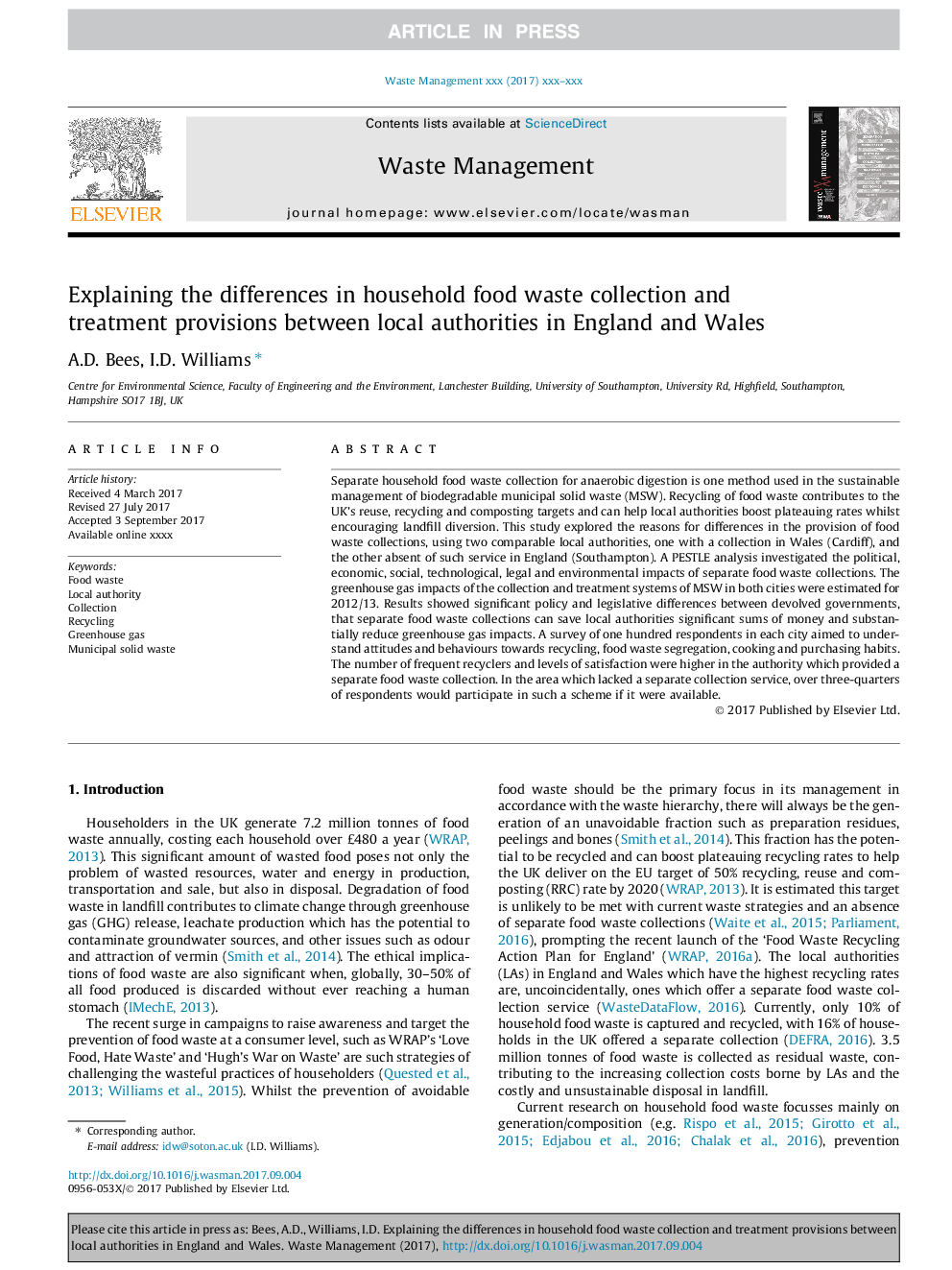ترجمه فارسی عنوان مقاله
توضیح تفاوت ها در جمع آوری مواد زاید مواد غذایی خانگی و مقررات درمان بین مقامات محلی در انگلستان و ولز
عنوان انگلیسی
Explaining the differences in household food waste collection and treatment provisions between local authorities in England and Wales
| کد مقاله | سال انتشار | تعداد صفحات مقاله انگلیسی |
|---|---|---|
| 91705 | 2017 | 14 صفحه PDF |
منبع

Publisher : Elsevier - Science Direct (الزویر - ساینس دایرکت)
Journal : Waste Management, Volume 70, December 2017, Pages 222-235
ترجمه کلمات کلیدی
زباله های مواد غذایی، مقامات محلی، مجموعه، بازیافت، گاز گلخانه ای، زباله جامد شهری،
کلمات کلیدی انگلیسی
Food waste; Local authority; Collection; Recycling; Greenhouse gas; Municipal solid waste;

